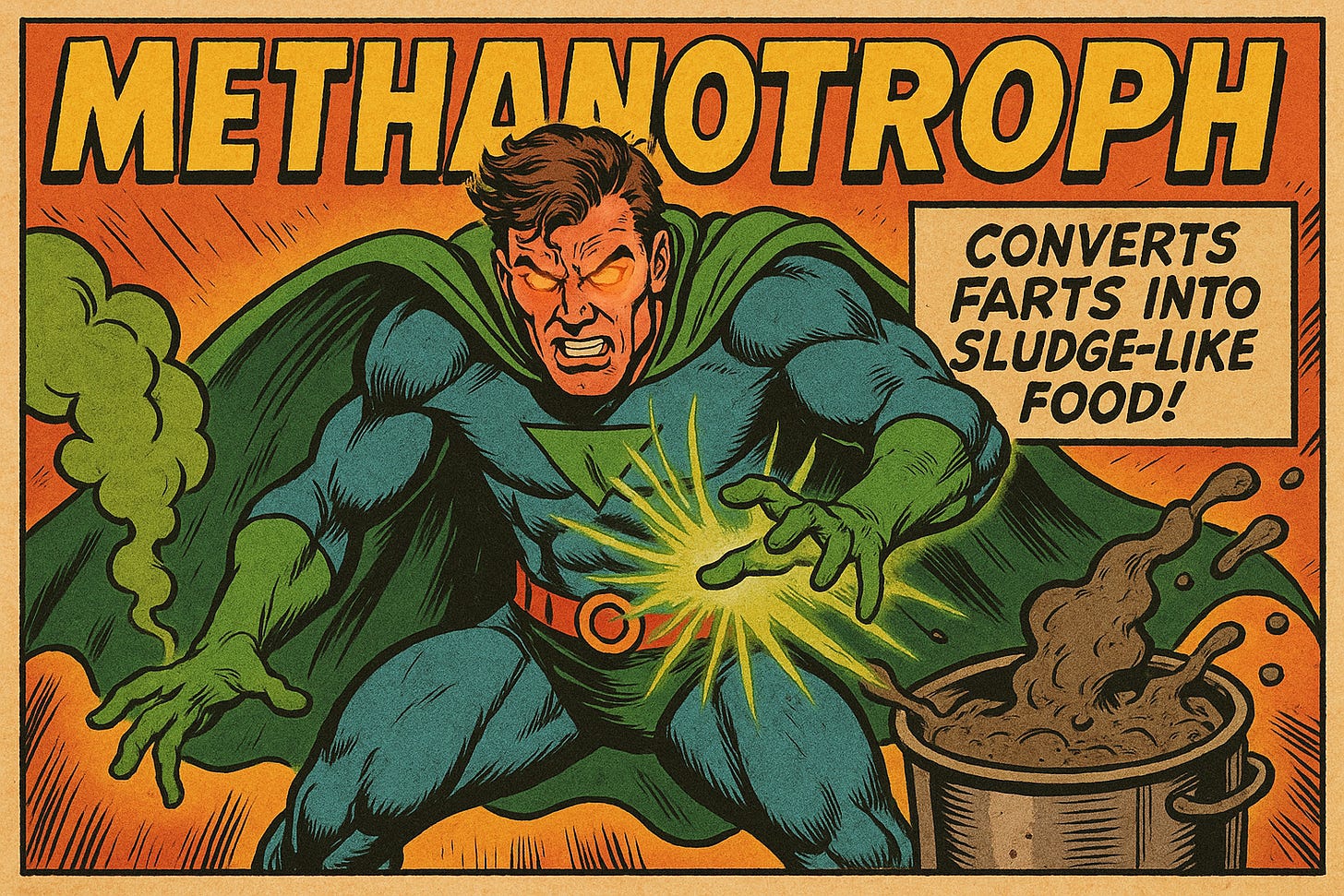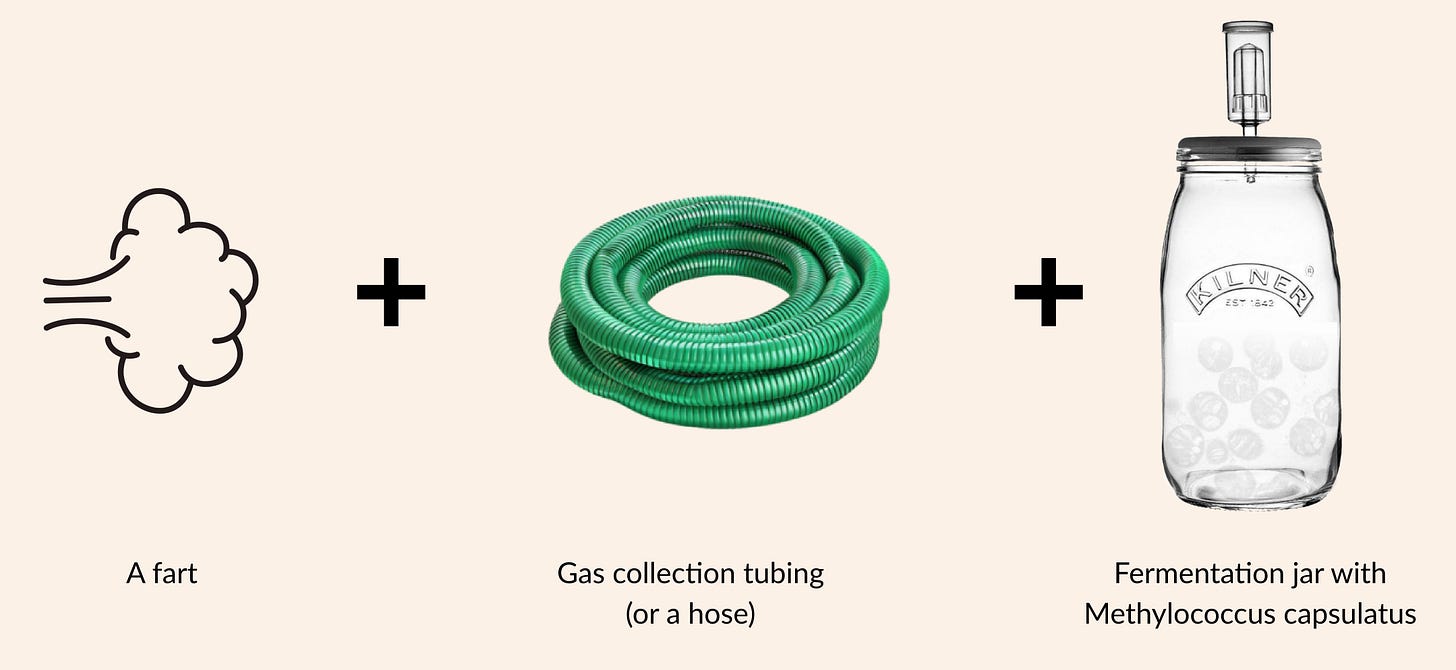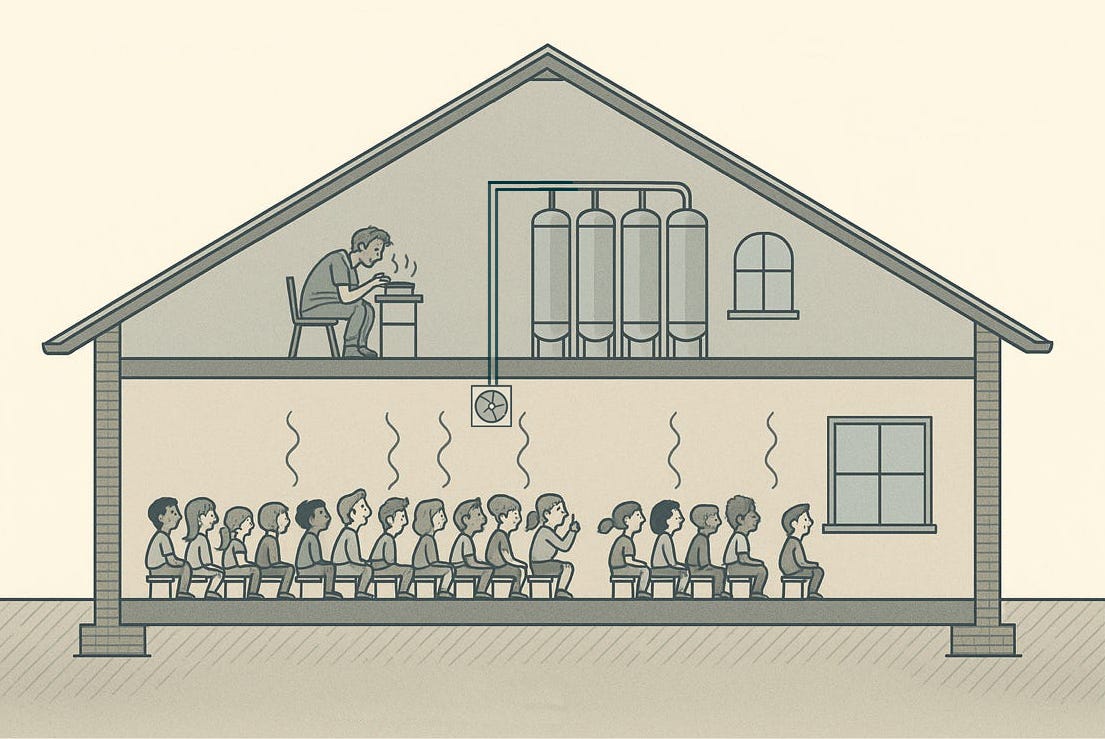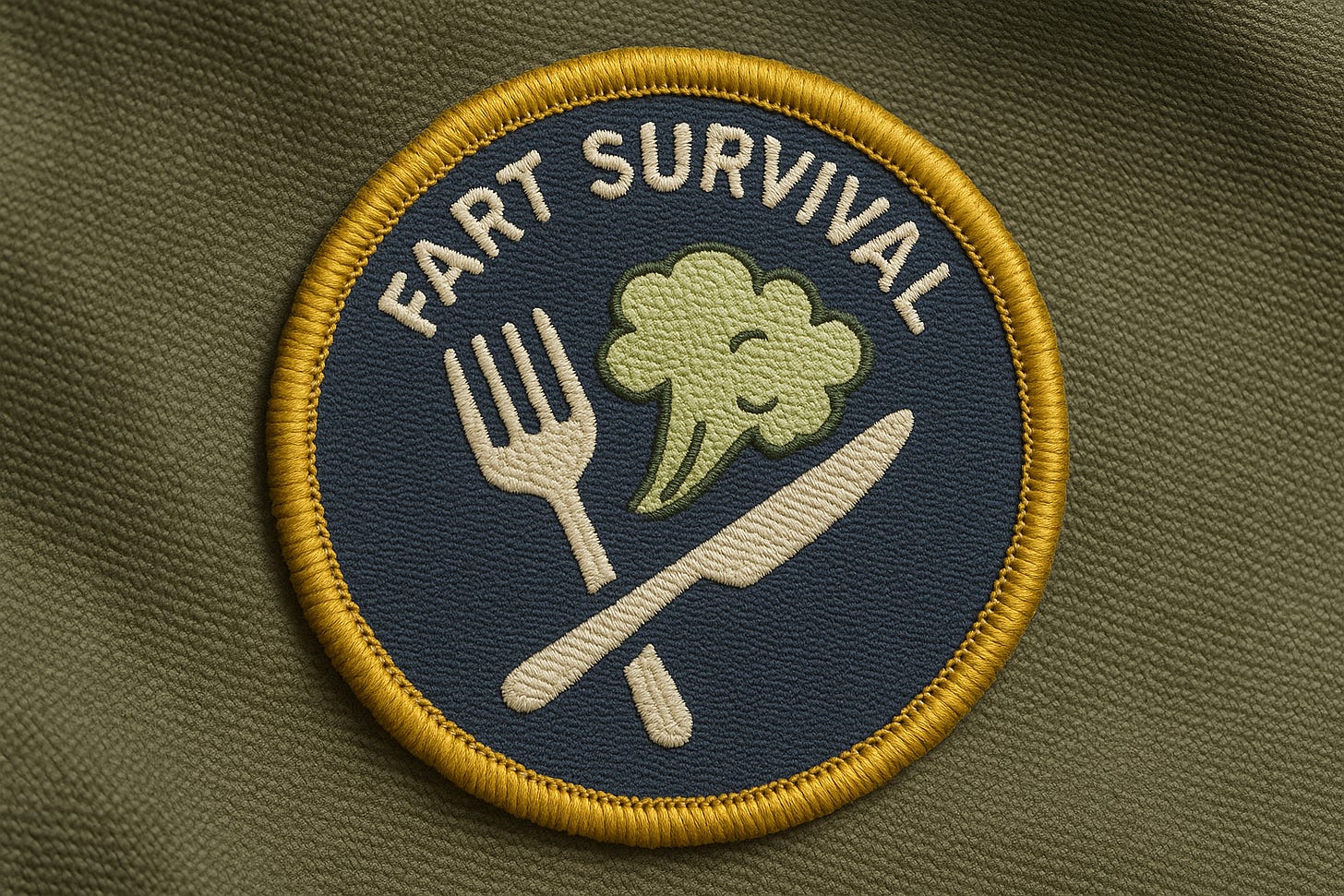Can you survive on a diet purely of your own farts?
The answer stinks.
It’s not ideal. But surviving off your own farts might one day become a necessity. Pick your scenario: nuclear apocalypse, societal meltdown, alien invasion, or good ol’ fashioned morbid curiosity. Whatever the reason, they all require investigation and planning.
I don’t know what the scout’s badge looks like for survival-based fart eating, but I’m about to earn it.
Beer, football, and more beer!!!
(If I meant that, would it be more or less embarrassing than this article?)
Anyway, here’s the crucial stuff:
The basic physiological requirements for human survival include adequate caloric intake to meet energy demands, access to essential micronutrients such as vitamins and minerals, and sufficient water for cellular function.1
For the purpose of this plan, I’m going to assume there’s a water source—like a well, or some Evian - so the farts just need to deliver calories and nutrients somehow.
What is a fart made of?
Dinner is served!
Here are the key ingredients. Do check for allergens:
The major constituents of human flatus are nitrogen, hydrogen, carbon dioxide, methane, and oxygen. The relative concentrations vary with diet, colonic flora, and other factors, but nitrogen is typically the most abundant gas.2
Sadly, all of these are gases. They’re not edible and don’t provide any calories or nutrients.
So we’re faced with a choice: abandon the investigation as it’s clearly impossible
or…
feed the farts to something else, then eat the result. Close enough, right?
Enter: Methanotroph!
(The smelliest X-Men character.)
Methanotrophs are bacteria that consume methane gas, convert it into protein-rich biomass, and film it for their OnlyFans. They come in the form of Methylococcus capsulatus, and they’re used in the pet food industry.
Think of them as fart-powered tofu factories.
Methanotrophs are Gram-negative proteobacteria, noted for their ability to utilize methane as the sole source of carbon and energy. 3
Your Fart-to-Food™ machine
It’s simple. Siphon your guffs into a fermentation jar containing the magical bacteria. Let it stew at 35°C, wangle in some oxygen with an aquarium pump every few hours, and let it ferment for 2–5 days.
The end result? High-protein paste. Smells weird. Feeds fish. Could feed you.
Congratulations: You’re now in a closed-loop fart economy.
Finally, your parents are proud of you.
But wait…
If that’s your diet, will you continue to produce methane?
Sadly not. How embarrassing for you.
Methane production in the human colon is dependent on the availability of fermentable substrates such as dietary fibre.4
If your only food is depraved sludge grown from your own farts, that’s not gonna cut it.
You’ll be fine for perhaps an initial five-course tasting menu, but then your microbiome starves. Methane production drops. The loop fails.
But don’t order a Deliveroo just yet. Save your dignity. The fart feast awaits…
The logical conclusion: stealing farts from schoolchildren
Faced with extinction, you adapt. You innovate. You become resourceful. You hide in a school roof cavity and harvest the farts of unsuspecting kids.
It’s the perfect environment for a harvest.
Children pass gas an average of 10–20 times per day, with volume and odour influenced by diet and gut flora maturity. 5
Each morning, hundreds of children sit in assembly. They listen. They shuffle. They emit. Your air-extractor unit whirs quietly, sucking the stench into your fermentation hovel. Farm to plate.
You dine like a king, whispering into your spoonful of sludge:
“Thank you, Year 6.”
Any questions?
Sources:
World Health Organisation, Human Nutrition in the Developing World, 1997.
Suarez FL, Springfield J, Levitt MD. Identification of gases responsible for the odour of human flatus and evaluation of a device purported to reduce this odour. Gut. 1998;43(1):100–104. doi:10.1136/gut.43.1.100
Frontiers in Microbiology, 2021
Cummings JH, Pomare EW, et al. The metabolism of dietary fibre components in the human large intestine. J Clin Nutr. 1982.
Rao SSC, Clinical insights into childhood gastrointestinal gas dynamics, Pediatric Gastroenterology Today, 2007.









Bringing a whole new meaning to 'who cut the cheese?'
If your only food is depraved sludge grown from your own farts, that’s not gonna cut it.
It's like Brian Cox level science... But about things nobody has thought to ask before